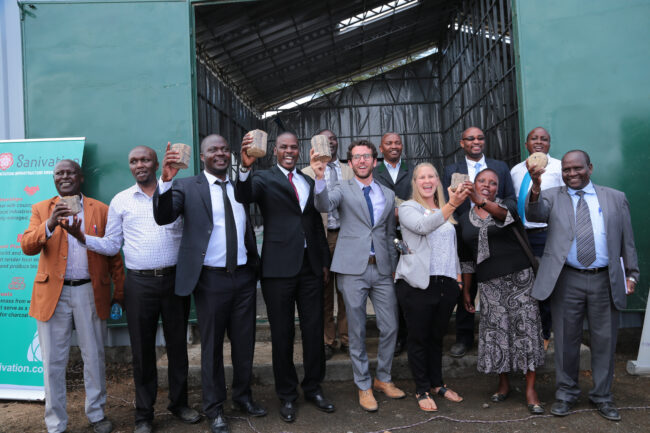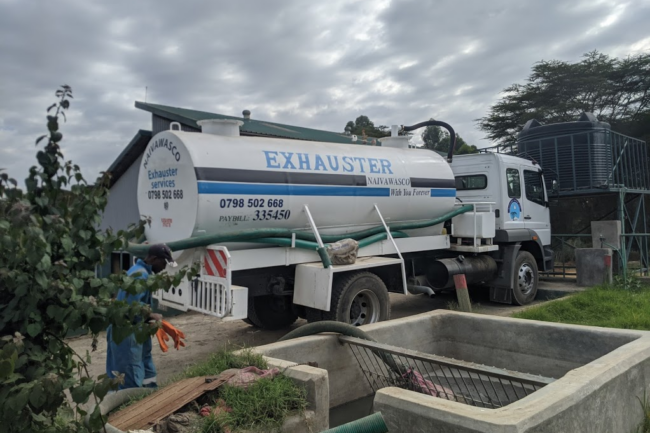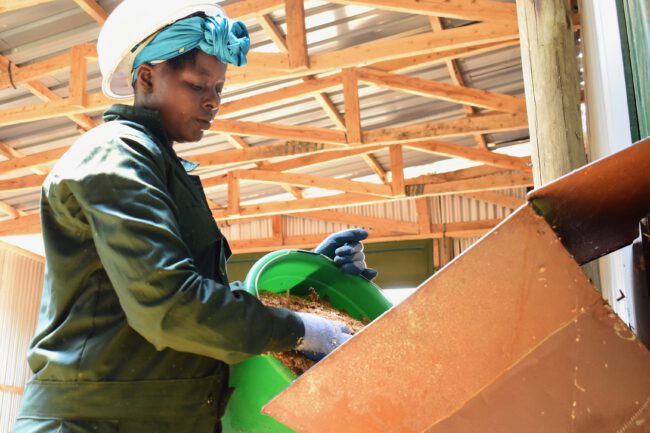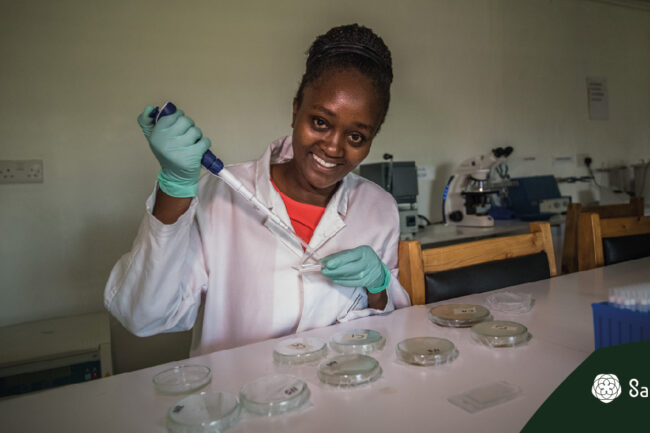Sanivation partners with local governments to develop and operate waste-to-energy plants. The waste-to-energy treatment plants turn waste products into biomass fuels stimulating a circular economy approach. Sanivation has already successfully piloted this approach, and with CFYE’s contribution, it will scale it up, creating more than 400 jobs for Kenyan youth.
Note: Our funding agreement with Sanivation concluded before the project’s completion. However, we are excited about the progress made and look forward to seeing continued success and impact in the future.
The Problem
Poor sanitation costs cities around $10 million per year. Along with deforestation, poor sanitation has devastating impacts on the environment and people’s health. It leads to the transmission of diseases and pollutes land and watercourses. Rapid urbanization only exacerbates this issue: urban population growth consistently outpaces gains in improved sanitation access. Kenya is no exception. In 2015, 3.8 million more Kenyans did not have access to sanitation services than in 2000. On the other hand, Kenya consumes a lot of biomass energy; unsustainable and unimpeded biomass consumption leads to deforestation and accelerates climate change, which interferes with food production and puts the current and future livelihoods in jeopardy. Therefore, there is an urgent need for diversifying the energy supply on top of finding more sustainable waste management solutions.
While there have been new funds emerging for circular economy treatment plants, Sanivation’s waste-to-energy factory is a first of its kind. Local governments and financiers are risk-averse when it comes to investing in innovative approaches. This means that this waste-to-energy model should be de-risked.
The Solution
Sanivation operates waste-to-energy treatment plants that process fecal sludge and turn it into biomass fuel. The fuel is sold to industries to replace firewood in their boilers. The fuel revenue covers the operational costs, allowing the treatment plant to operate in perpetuity.
So far, Sanivation has deployed three pilot waste-to-energy treatment plants and signed joint development agreements with government actors from nine different cities within Kenya – from Nakuru to Kisumu to Malindi. The purpose of these pilot plants was to prove that we could sell biomass fuel made from waste products in partnership with the government. Building on the learnings from these pilot sites, Sanivation aims to scale the existing pilot plant in Nakuru County to 10 times the capacity, creating 400 direct and indirect jobs, producing 1,200 tons of fuel per month, and treating 3,000 tons of fecal sludge per month.
This project generates income and sources of livelihood for employees who have previously worked in informal jobs. It employs people for every step of the value chain, from paying small-scale farmers to formalizing the collection of secondary biomass inputs for the fuel to waste treatment operators at the site and the sales team.
Additionality
To unlock both commercial finance and public investment for replication, CFYE funding will be catalytic in helping Sanivation demonstrate the waste-to-energy factory at scale, showcase the impacts and margins, and streamline the partnership structure. This project is the first of its kind for East Africa; funding and technical assistance from CFYE could help put these city-wide, waste-to-value plants on the map as a viable solution to a global problem. The grant will allow for an expansion of the factory, create more jobs, and secure a path to rapid scaling to other counties across Kenya. The CFYE funding will also enable higher risk-taking with expected higher development impact on project design and results.






